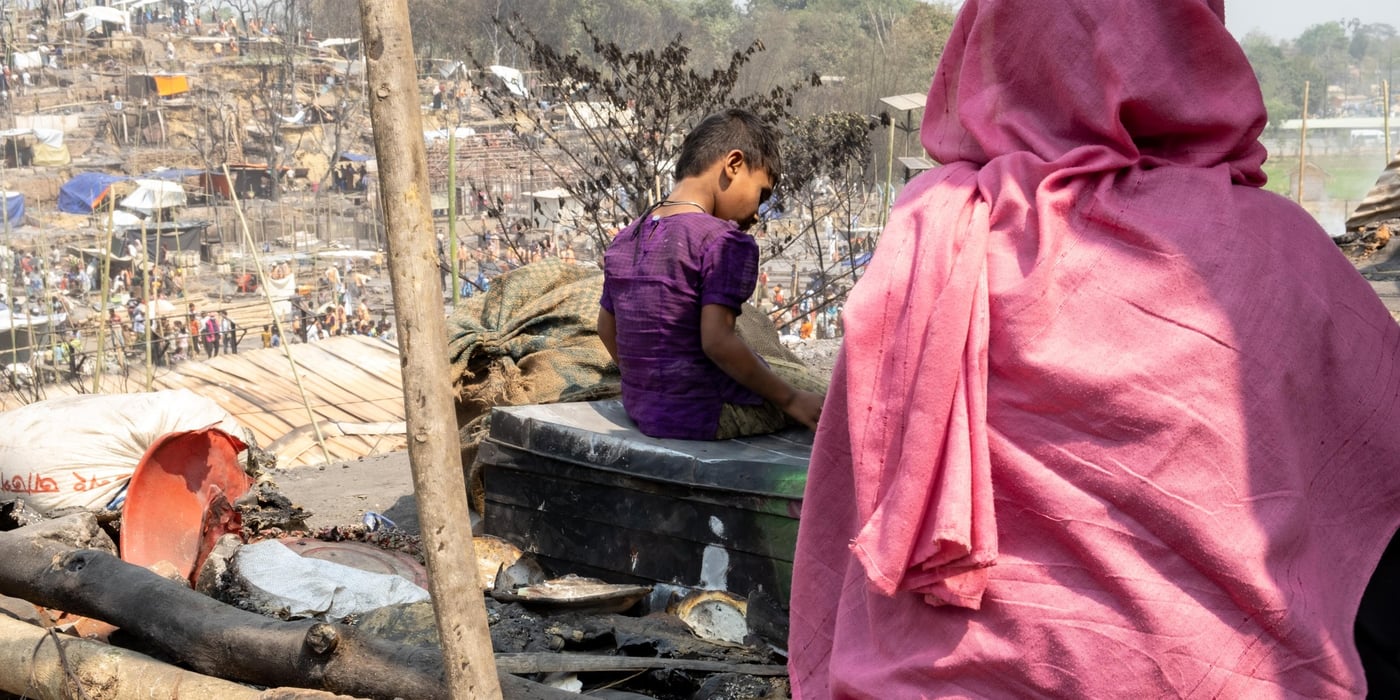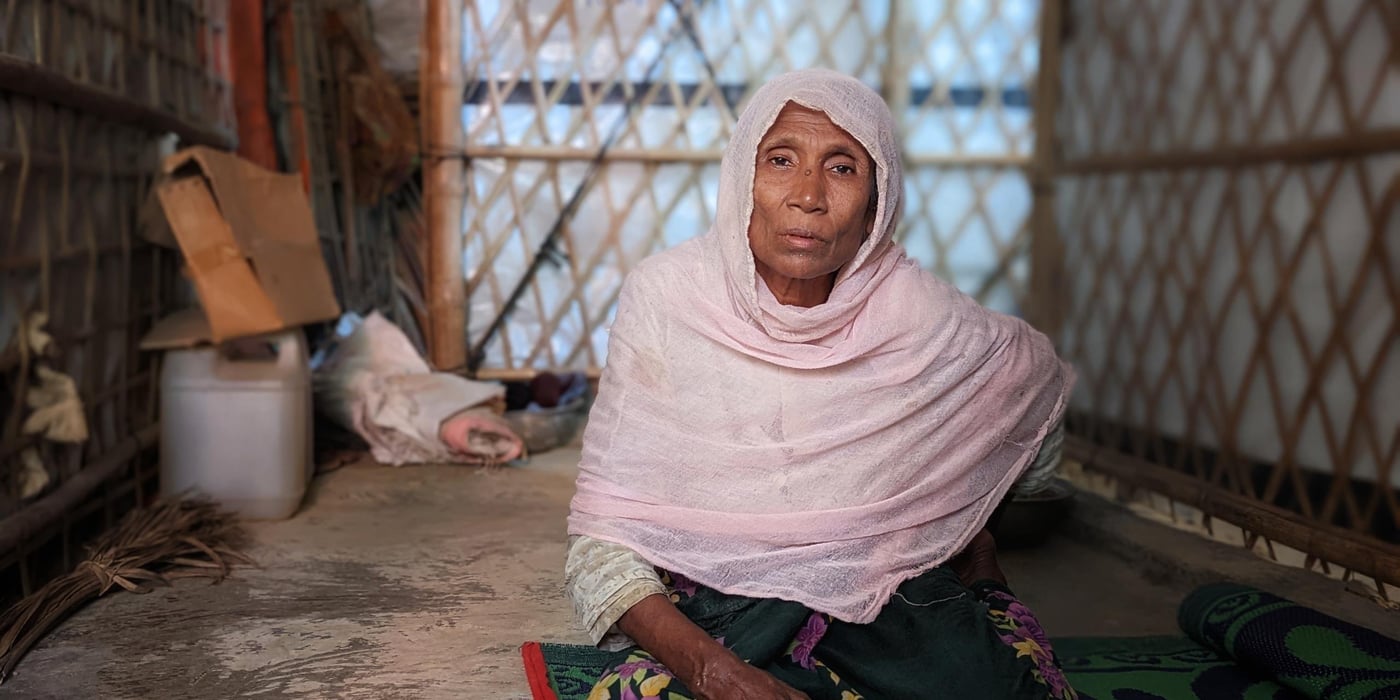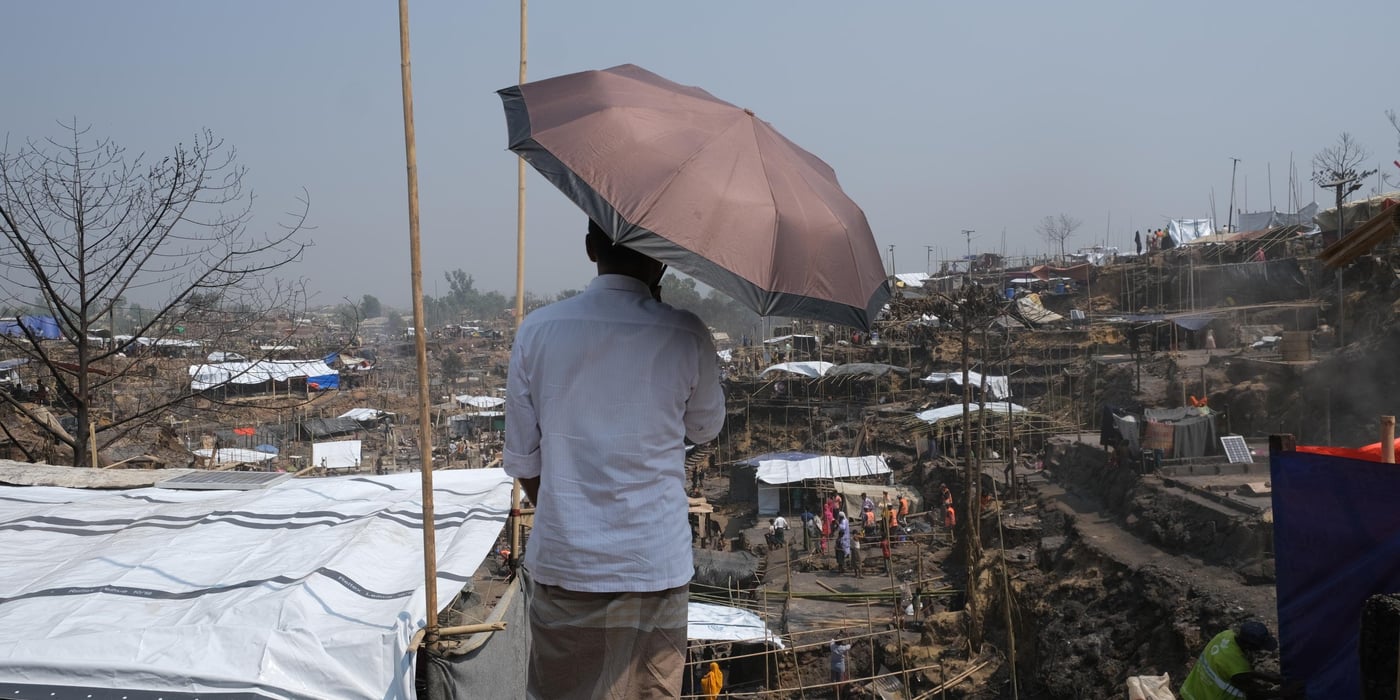
While the origin of the fire is still unclear, refugees tell us the flames spread rapidly, engulfing the bamboo and tarpaulin shelters and leaving a trail of destruction.
Around 400 shelters have been damaged or destroyed, and 2,500 people have lost their homes. In addition, vital service points and infrastructure have been damaged. Children remain missing, and at time of writing, we can confirm that a four-year-old child has tragically died.
"Unfortunately, these fires have become as common as the world’s neglect of Rohingya refugees," said Mainul Islam, acting country director for the Norwegian Refugee Council (NRC) in Bangladesh.
"Lives continue to be in limbo, and in the absence of any meaningful progress toward durable solutions, an entire community is caught in a cycle of repair and loss."

Zia Naing, a Rohingya photographer who is documenting the crisis for NRC, saw first responders rushing toward the scene as refugees fled the flames.
"They kept the fire from spreading until the fire brigade arrived and brought the flames under control," Zia said. "Without their help, it could have been much worse."
Refugees have told us the alarming frequency of fires has left the community fearful.
"No-one knows when or where the next fire might break out," Hamida told NRC. "I don’t know where I will sleep with my children tonight. I don’t know why this keeps happening to us."
The Norwegian Refugee Council is currently working with partners to assess needs.




